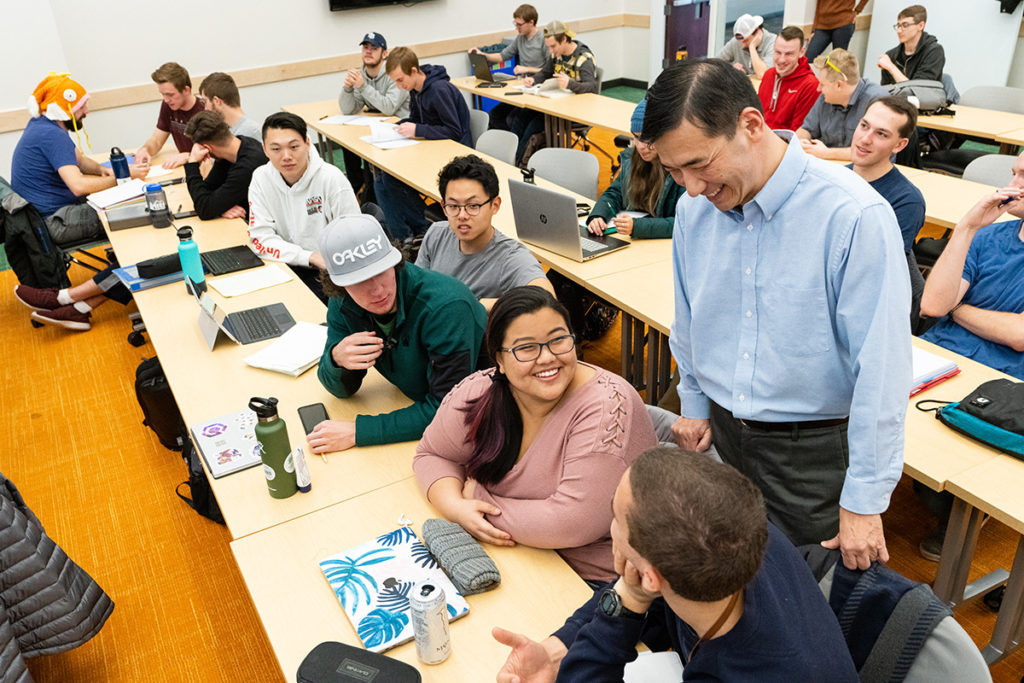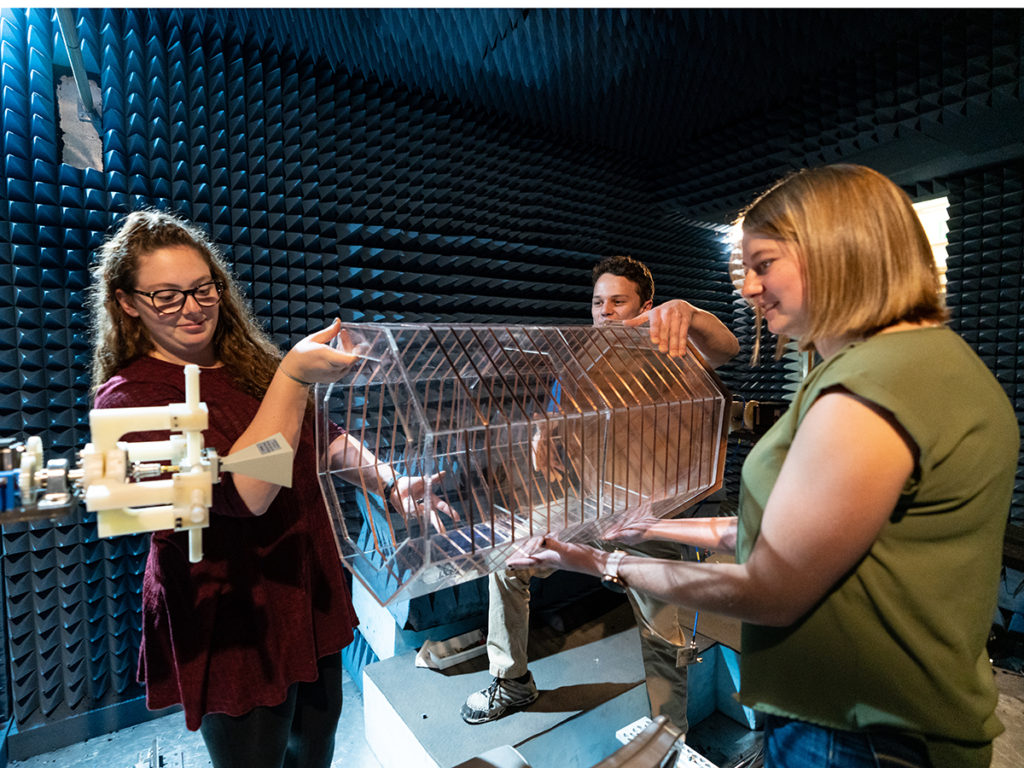
A revolutionary approach to teaching is capturing the attention of the engineering community and changing the way students perceive and learn engineering at Colorado State University.
Five years ago, faculty in the Department of Electrical and Computer Engineering (ECE) teamed up with partners in Mathematics, the Institute for Learning and Teaching, Psychology and School of Education to challenge the status quo in engineering education. With the goal of fostering a more diverse and engaging learning environment to create career-ready engineers, the multidisciplinary team applied for and received a $2 million Revolutionizing Engineering Departments grant, known as RED, from the National Science Foundation.
Now in the final year of the RED grant, their work has paved the way to a new normal in the department – a culture built on collaboration, creativity and blurring the lines between courses.
Reimagining learning
In a traditional engineering program, faculty teach courses in “silos,” said Tony Maciejewski, department head, and they are not incentivized to look at the curriculum holistically. “As a result, students feel like they are learning information in a vacuum and they struggle to see how disparate ideas will help them be a successful engineer,” he said.
Through the RED project, ECE professors are breaking down those silos. “At a fundamental level, our faculty are working creatively and collaboratively to help students ‘get it,’” said Maciejewski. “Changes are occurring in the integration and delivery of content to show students what real engineering is.”
Thinking beyond their individual courses, multifaceted faculty teams meet on a weekly basis to synthesize technical content across the curriculum. “It seems basic, but it is actually a big shift in the way we teach engineering,” said Professor Tom Chen, a co-principal investigator on the RED grant.
In addition to illustrating how concepts are interconnected and interdependent, faculty teams are using familiar applications to show students how that knowledge drives next generation technologies, from advanced medical imaging to autonomous vehicles to smartphones.
“Our professors bring together seemingly unrelated subjects, such as electronics and electromagnetics, to show us how they are applied to a real-world situation,” said Priscilla Vazquez, an electrical engineering senior. “I find myself using these ideas to understand the world around me. It’s what I like most about engineering.”
Career ready engineering
Statistics show that a staggering number of students across the country leave electrical and computer engineering before graduating, and those who persist through to graduation often find themselves grappling to understand what is means to be an engineer in a rapidly changing world. Aiming to hook students’ interest in the field and prepare them for success in the profession, Electrical and Computer Engineering faculty are helping students become well-rounded engineers by weaving central themes throughout the curriculum, called “threads,” to enrich their technical knowledge.

As the underpinning of engineering, the creativity thread provides additional opportunities to engage in research and design projects at all levels of the undergraduate program, while the foundations thread is designed to show students why math counts in engineering. Through the professional formation thread, the Engineer in Residence program is helping students hone professional skills, such as communication and teamwork. Hugely popular among students, the novel program is a partnership with the Institute of Electrical and Electronics Engineers that brings engineering professionals into the laboratory to advise and mentor undergraduates.
NSPE Project of the Year
Adding to a growing list of accolades, last month the department received the 2019 Public Sector Project of the Year Award from the National Society of Professional Engineers Colorado Chapter (NSPE-CO) for its work to reinvent teaching and learning.
“The ECE department at Colorado State University stood out to the judges as worthy of this recognition for being forward-thinking in educating the next generation of professional engineers,” said David Le, president of NSPE-CO.
In 2018, the department was honored by CSU with the Provost’s N. Preston Davis Award for Instructional Innovation, and ECE Associate Professor Ali Pezeshki was named an outstanding teacher by the Walter Scott, Jr. College of Engineering for his work with the foundations thread to show students why math matters in engineering. Richard Toftness, director of the Engineer in Residence program, also received the IEEE Region 5 Outstanding Individual Achievement Award for fostering industry-academia partnerships through the professional formation thread.
Building on the momentum of the last five years, the ECE department is working to expand the RED project to other institutions. “We have garnered interest in our project from prominent engineering schools across the country,” said Maciejewski. “We remain steadfast in our commitment to unraveling the longstanding issues facing engineering education.”